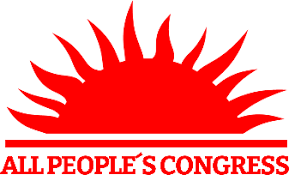The ‘Klin Energy’ initiative will make Africell Sierra Leone more sustainable and resilient
Africell’s push to become more sustainable and resilient in Sierra Leone has made significant progress with the activation of a solar farm in Freetown, the country’s capital.
The facility in Wilberforce, where Africell Sierra Leone’s head office is situated, broadens the company’s power generation capacity by bringing solar-generated electricity into the power mix alongside electricity from the grid and diesel generators.
The plant has a peak power of 230 kilowatts peak (kWp, a measure of the peak power of a solar energy system). It consists of a series of photovoltaic panels connected to three converters which convert a direct current of electricity (the immediate product of the solar panels) into in alternating current which can be used for Africell’s power needs.
Solar power is a promising solution to medium-scale power needs in Africa because solar systems sidestep infrastructure and governance challenges which impede the development of reliable electricity grids. Solar energy is also cleaner and more efficient than electricity produced via diesel generators. Diesel generators are used widely in Africa. On top of challenges associated with the cost of fuel, they contribute to chronic air pollution and related public health issues.
Africell’s Klin Energy project also involves the launch of ten solar-powered “tricycles”. Tricycles are a common form of local transport in Sierra Leone, used by ordinary commuters and companies such as Africell for short to medium distance journeys. Having been retrofitted with solar panels and electric propulsion systems, Africell’s fleet of e-tricycles yields a minimal carbon footprint and exemplifies the possibility of greener transport in Sierra Leone.
Klin Energy is a part of a long-term strategy to make Africell’s operations more sustainable and resilient. In the Gambia and Sierra Leone, for example, Africell has invested in a growing number of solar-powered cellular sites. These sites are much more efficient than diesel-powered sites, generating less noise and virtually no pollution and being significantly cheaper to run and maintain. Moreover, solar-powered cellular sites create opportunities to extend coverage into remote and rural areas where mains electricity doesn’t exist and transporting fuel is difficult. This enables more communities to come within the scope of network coverage and – over time – helps to narrow the rural-urban divide.
In September 2022, Afrimoney (Africell’s mobile money platform) partnered with Easy Solar, a solar energy start-up, to create a digitised payment system that makes it easier and cheaper for Sierra Leonean consumers to buy solar panels and solar-powered devices such as low-energy bulbs, chargers, TVs, water pumps, fans and stoves. The same was done with PowerGen Renewable Energy, a company supplying energy to homes in provincial areas of Sierra Leone.
According to the International Energy Agency (IEA), Africa has 60% of the world’s best solar resources, but only 1% of solar generation capacity. Clean energy investments are essential for Africa to achieve its development goals. In Sierra Leone, Africell is showing how the telecommunications sector can provide opportunities and inspiration for these investments.













